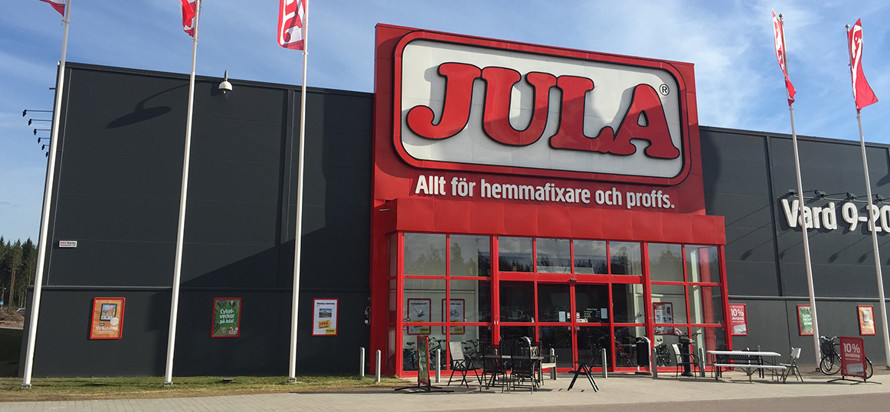Jula’s expansion supported by smooth integrations
The Swedish store chain Jula is expanding rapidly. The expansion requires constant changes in the IT environment, when new systems are integrated with the company's ERP system. However, with Jula's flexible integration platform, it can be done quickly and easily without disturbing the core operations.
Jula is a store chain that sells products to DIY consumers and professionals. The company has grown substantially since the first department store opened in Skara, Sweden, in the early 1980s. In 2008, Jula was established in Norway, and 2011 in Poland. Today the company has a total of 72 department stores ― and the expansion continues.
Constant Change
- The normal state for us in IT is constant change. New projects keep popping up that turn everything upside down, but for us it’s "business as usual", says Daniel Persson, Integration Manager at Jula.
- In this changing environment, our integration platform plays an important part, he continues. We can integrate new systems and applications a short time and put them in actual service. We can quickly get up on the tracks. We don’t need to start from scratch every time a new system should be integrated.
The need to integrate systems has increased constantly. It was just over a year ago Jula chose to introduce the integration platform iCore Integration Suite. Prior to that, all integrations were developed in-house.
Basically, we needed a manual on how to quickly and easily connect new systems to the ERP system. Some systems we outgrow and replace. We also bring in entirely new types of systems due to new needs. This works very well with iCore’s integration platform,
Henrik Ljungdahl, CIO at Jula
Eight employees at Jula are certified in iCore Integration Suite. The systems that are integrated with Jula’s ERP system Infor M3 include the content management system Agility, used for product information management, and the company’s new EPIserver-based website. In cooperation with iCore and its consulting organization and two consulting firms in the iCore partner network, Jula is building its integration structure and develop its integrations.
- So we have three parts we can take help from when it comes to integration, says Daniel Persson. We can scale up the IT environment quite a bit in just a few weeks. We can accept more development requirements in the organization. This means a direct positive impact on the company’s core business.
- Using the platform, we can also much better and clearer set up new systems in parallel with the old ones and test them. That will save us money.” says Henrik Ljungdahl.
- The integration platform is a great foundation for integration with external parties’ systems. Today, Jula only has a few such integrations. So far, we don’t use EDI to exchange electronic business messages with external parties, says Daniel Persson. But an EDI solution on the supply side may become relevant in the future.
- We have had the integration platform only for a year. There are many systems left to move to the platform. When completed, we expect to earn a lot of time and money. How much is hard to guess, given the tough business expansion that constantly takes place, says Henrik Ljungdahl

